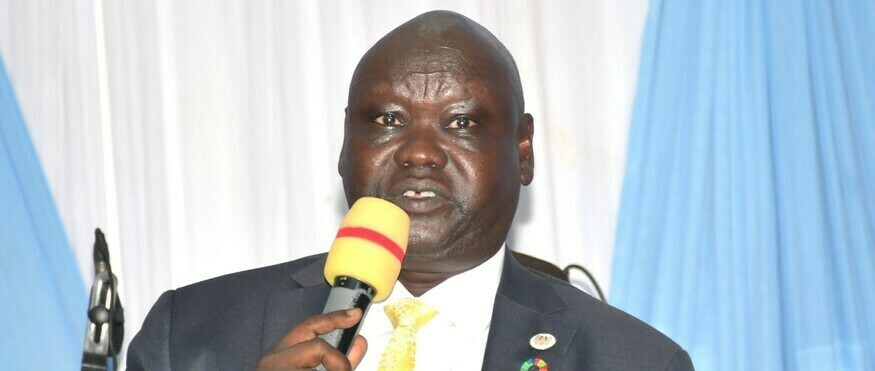South Sudan’s Minister of Peacebuilding Stephen Kor Kuol on Wednesday challenged women in power across South Sudan to advocate for each other and “not for those who appointed them.”
In addition to encouraging women to promote girl-child education as a means of empowering themselves to be great leaders, minister Kuol stated, “It is not about the quantity of women in leadership but is about the quality of their leadership. And when you have few women picked by men, you don’t get the quality there. Women need to fight for their position and in all theories of leadership. You must be represented by your best. You also need to challenge the women in power to advocate for you, not for those who appointed them.”
Speaking at a roundtable discussion titled ‘The Journey of Women in Peacebuilding, Leadership, and Participation in South Sudan’, Koul emphasized the necessity of empowering women through the promotion of girl child education for their effective participation in leadership roles.
Koul highlighted that empowered women, constituting the majority in the country, can competently engage with their male counterparts once provided with educational opportunities.
The minister emphasized that women’s involvement in leadership should span across all sectors, including politics and the private sphere. He stressed the importance of focusing on the quality of women’s education rather than merely increasing their numbers.
“I’ve witnessed firsthand, as a teacher, the transformative impact of education, particularly for girls. Investing in girl child education lays the groundwork for their academic and leadership success,” Kuol remarked.
As the country gears up for the December elections, Minister Kuol sees this as a significant opportunity for women nationwide to choose leaders who genuinely support them. He emphasizes, “We are talking about the elections. If elections are meant to bring leaders, let’s seize the chance to elect leaders who truly champion women’s interests. Otherwise, let’s focus on empowering women through education and ensuring they have the resources to support themselves independently.”
Additionally, the minister challenges women to broaden their focus beyond politics, stating, “Women shouldn’t solely concentrate on politics; they should look beyond it.” He argues that progress in women’s leadership extends beyond political realms, emphasizing the need for women to have influence across all social structures in South Sudan.
Peace Building Minister Kuol observed, “From what I can gather, there are numerous young women within various organizations who are already demonstrating strong leadership capabilities. However, as long as we continue to discuss ‘women in power,’ it signifies that we have yet to achieve true progress. In essence, this suggests that women are not yet empowered because true empowerment means they are already in positions of power. Therefore, I urge us to shift our focus to the current status of women’s representation and leadership.”
Linken Nymann Berryman, the Norwegian Ambassador to South Sudan, highlighted the barriers hindering girls and women from fully participating in the country’s development, citing early and forced marriages as well as dowries as major issues. She emphasized that these challenges can only be overcome if the government addresses their root causes.
Ambassador Berryman reaffirmed Norway’s dedication to prioritizing women’s peace and security, stating, “Early and forced marriages, along with dowries, are significant obstacles to the full participation of girls and women in South Sudan’s development. Addressing the root causes of these issues is essential for sustainable change.”
She further expressed admiration for the resilience and strength exhibited by the women of South Sudan, emphasizing Norway’s commitment to supporting women’s empowerment, democracy, and human rights in the country.
Ambassador Berryman urged the government to recognize the crucial role of women in conflict prevention, management, and post-conflict reconstruction, emphasizing the need for women to be acknowledged as vital links in these processes.



